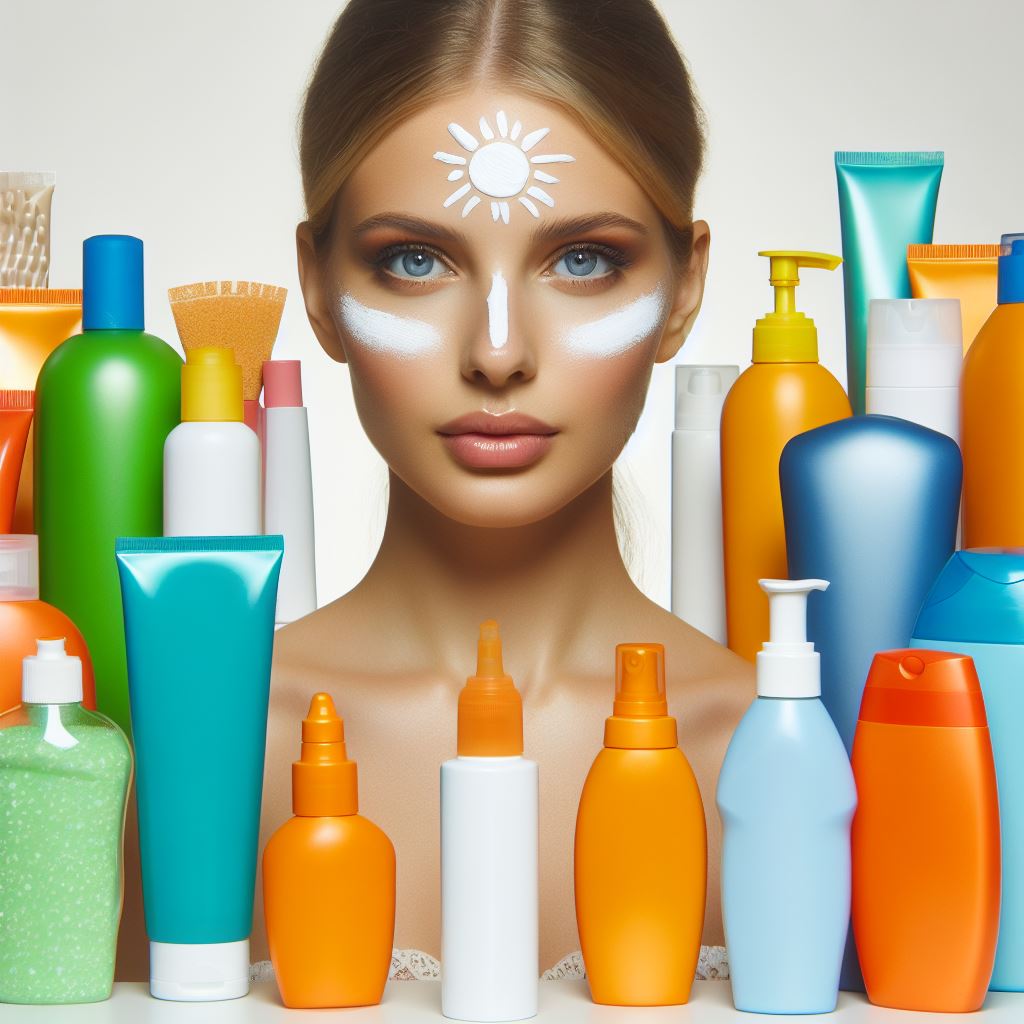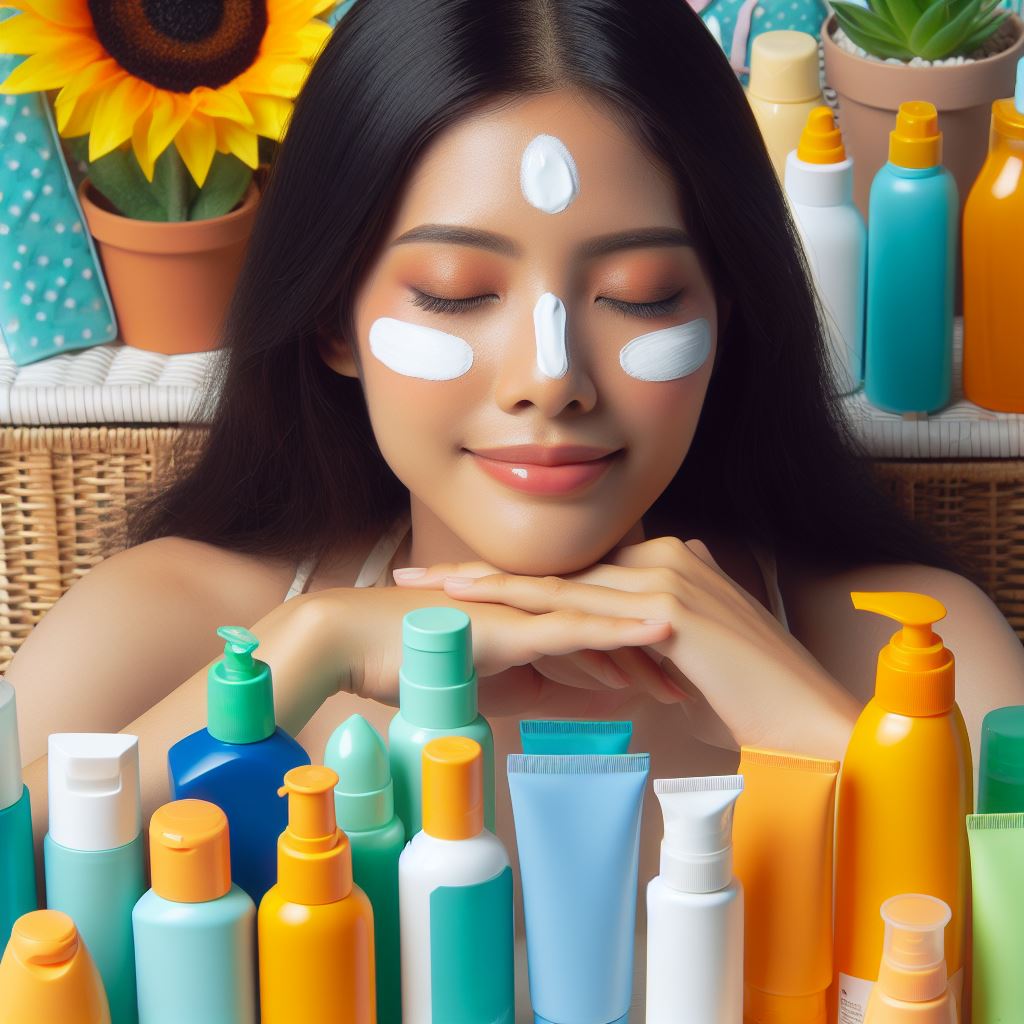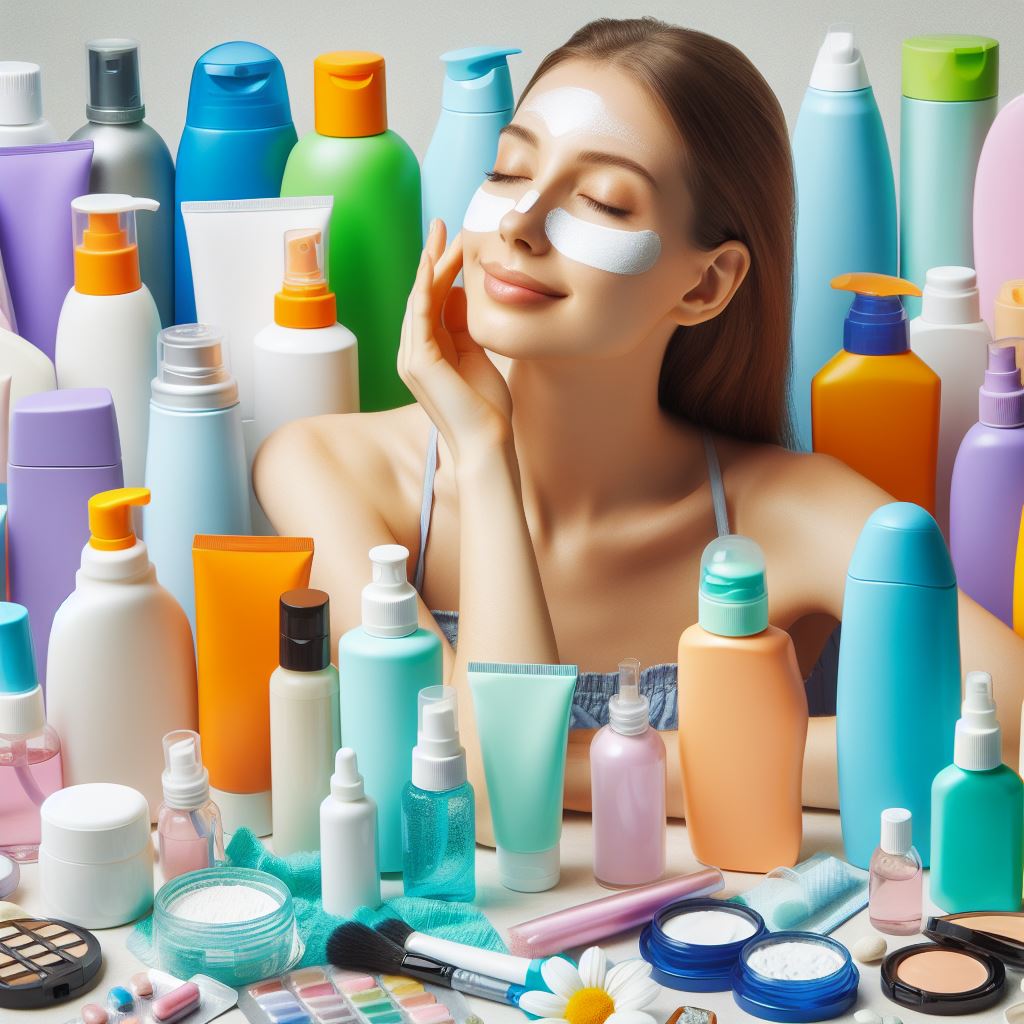Sunscreen: What it is, how it works and why it is important for your appearance
Sunscreen is a product that protects the skin from the harmful effects of ultraviolet (UV) radiation from the sun. UV radiation can cause sunburn, premature aging, wrinkles, dark spots, and skin cancer. And, it is not just for the summer time! Sunscreen works by either absorbing or reflecting some of the UV rays before they reach the skin, or by creating a physical barrier that prevents them from penetrating the skin. Sunscreen is important for appearance because it can help prevent or reduce the signs of sun damage and improve the skin’s health and appearance.
How to choose a sunscreen
There are many factors to consider when choosing a sunscreen, such as:
The SPF (sun protection factor) rating
This indicates how well the sunscreen protects against UVB rays, which are responsible for sunburn and most skin cancers. The higher the SPF, the more protection it offers. However, SPF does not measure protection against UVA rays, which are responsible for most of the visible signs of aging and can also cause skin cancer. Therefore, it is recommended to use a sunscreen with both SPF 15 or higher and PA (protection grade of UVA) rating of at least 30.

The broad-spectrum protection
This means that the sunscreen protects against both UVA and UVB rays. It is important to use a broad-spectrum sunscreen because UVA rays can penetrate deeper into the skin than UVB rays and cause long-term damage.
The water resistance: This indicates how well the sunscreen stays effective when exposed to water or sweat. It is recommended to use a water-resistant sunscreen that has at least SPF 30 and PA rating of at least 15 when swimming or sweating.
Sunscreen ingredients
Some ingredients may have additional benefits or drawbacks for certain skin types or conditions. For example, some ingredients may moisturize, soothe, or repair the skin; while others may irritate, dry out, or cause allergic reactions. Some common ingredients in sunscreens are:
Sunscreen chemical filters
These are substances that absorb UV rays and convert them into heat or light. They include oxybenzone (a common ingredient in mineral-based sunscreens), avobenzone (a common ingredient in chemical-based sunscreens), octinoxate , homosalate, octisalate, octocrylene , homosalate octocrylene combination, avobenzone octocrylene combination, oxybenzone octocrylene combination, homosalate avobenzone combination and oxybenzone homosalate combination.
Physical filters
These are substances that reflect or scatter UV rays away from the skin. They include zinc oxide and titanium dioxide. Zinc oxide is a natural mineral that has been used as a sunscreen since ancient times. It has anti-inflammatory properties and can be used by people with sensitive skin or allergies. Titanium dioxide is another natural mineral that has been used as a sunscreen since ancient times. It has anti-microbial properties and can be used by people with oily or acne-prone skin.
Organic filters
These are substances that contain natural plant extracts or oils that have some degree of UV protection. They include avobenzone derivatives (such as octisalate) derived from plants such as marigold flowers; oxybenzone derivatives derived from plants such as carrot flowers; homosalate derivatives derived from plants such as wheat germ oil; octinoxate derivatives derived from plants such as soybean oil; homosalate derivatives derived from plants such as wheat germ oil; oxybenzone derivatives derived from plants such as soybean oil.

How to apply sunscreen
The application of sunscreen should follow these steps:
- Apply sunscreen at least 15 minutes before going outside to allow enough time for absorption.
- Apply enough sunscreen to cover all exposed areas of the body evenly.
- Reapply sunscreen every two hours or more frequently if sweating, swimming, towel drying off, rubbing hands together after touching cosmetics products etc.
- Use about one ounce of sunscreen per application.
- Use about one ounce of moisturizer after applying sunscreen if needed.
How to store sunscreen
Sunscreen should be stored in a cool dry place away from direct sunlight heat sources children pets etc. Sunscreen can lose its effectiveness over time due to exposure to heat, light, or air. Exposure to heat can cause the sunscreen to degrade and release harmful chemicals into the skin. Exposure to light can cause the sunscreen to oxidize and change its color or smell. Exposure to air can cause the sunscreen to absorb moisture and become less stable.
To extend the shelf life of sunscreen, it is recommended to store it in a dark glass jar or bottle with a tight-fitting lid. The jar or bottle should be kept in a refrigerator or freezer for optimal protection. The temperature should not exceed 40°F (4°C) or drop below 32°F (0°C). The sunscreen should be checked regularly for signs of damage, such as cracks, leaks, discoloration, or changes in texture or smell.
Sunscreen should also be stored according to its expiration date and batch number. Expiration dates are usually printed on the label of the product and indicate how long the product will maintain its quality and performance. Batch numbers are usually printed on the bottom of the product and indicate when it was manufactured. Sunscreen that has expired or has been recalled may not work as intended and may pose health risks.

Sunscreen FAQs
Which is the Best Sunscreen to Use?
There are many sunscreens available in the market, each with its unique properties and benefits. Some of the top-rated sunscreens include Neutrogena Ultra Sheer Dry-Touch Sunscreen, Supergoop! Play Antioxidant Body Mist, and Aveeno Baby Continuous Protection Sensitive Skin Zinc Oxide Sunscreen. These products are highly recommended due to their broad-spectrum coverage, high SPF values, and water resistance. However, the best sunscreen for you would depend on your skin type, lifestyle, and personal preferences.
Is Sunscreen Good for You Every Day?
Yes, daily use of sunscreen is highly recommended by dermatologists. The sun’s UV rays are potent, and just 15 minutes outside is enough exposure to cause damage and potentially skin cancer long term. Even on cloudy days or when you’re mostly indoors, you’re still getting a hefty dose of the sun’s rays through your windows and windshields3. Therefore, applying sunscreen every day is essential to protect your skin from these harmful rays.
What’s the Difference Between Sunblock and Sunscreen?
Sunblock and sunscreen, while often used interchangeably, are two different types of sun protection that work in different ways. Sunscreen is a chemical defense that penetrates the skin and absorbs the UV rays before they reach and damage the dermal layers. On the other hand, sunblock is a physical defense that sits on top of the skin and reflects the sun’s rays away. Both forms are effective at protecting the skin from sunburn and preventing wrinkles, but they differ in their composition and the way they interact with your skin.
What Did People Use Before Sunscreen?
Before the invention of modern sunscreens, people used various natural and homemade remedies to protect their skin from the sun. These included rice, crushed jasmine petals, olive oil, sunflower oil, lupine, pine needles, mud, charcoal, cocoa butter, and burnt almond paste. Ancient Egyptians used jasmine and rice, which contain UV-absorbing compounds, while ancient Greeks applied olive oil, which unfortunately did not offer any sun protection. Despite their limitations, these methods were all they had to shield their skin from the sun’s harmful rays.
Sunscreen is an essential product for protecting your skin from sun damage and improving your appearance. By following these simple tips on how to store sunscreen, you can ensure that you always have enough sunscreen available for your needs and enjoy its benefits for a long time.
Sunscreen References
An update on sunscreen requirements